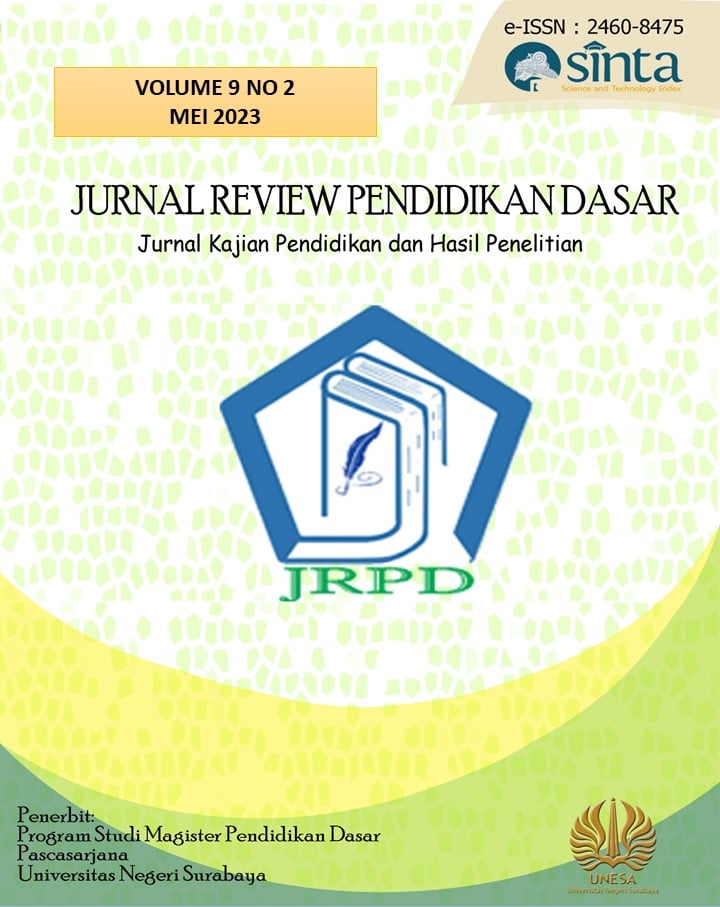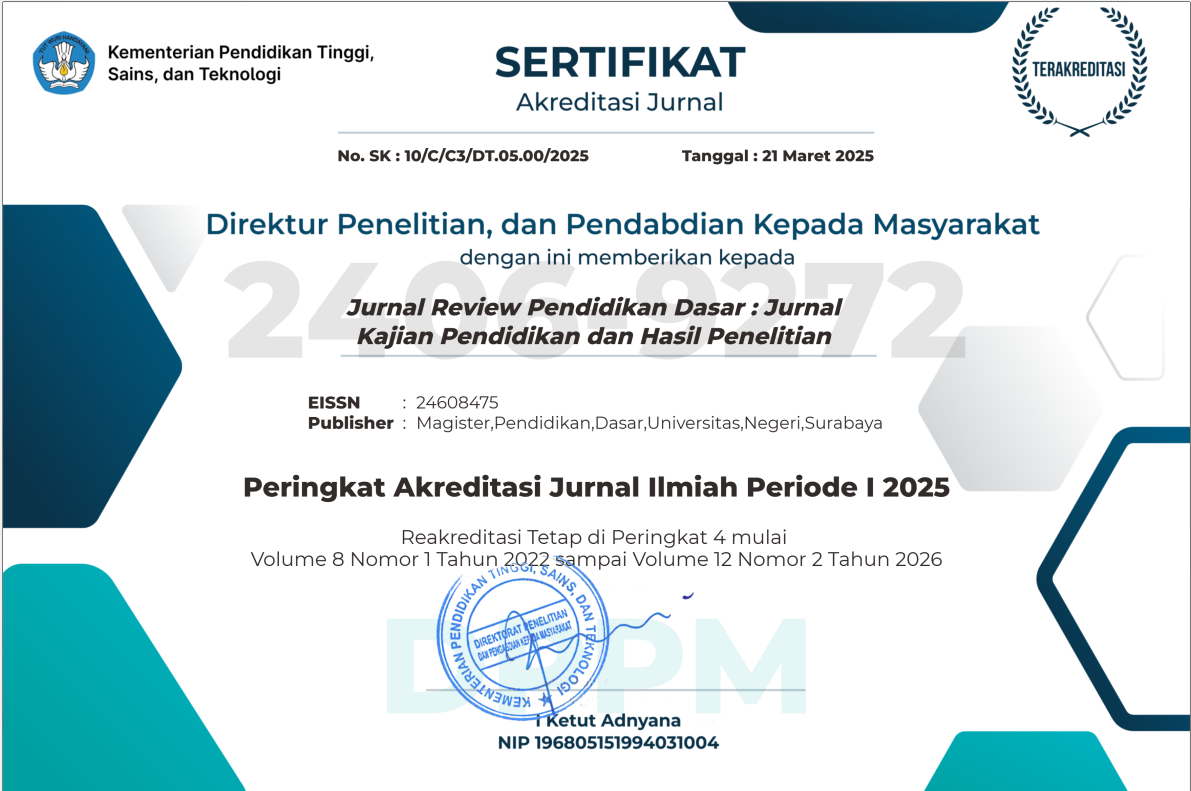MAPPING THE EVOLUTION AND CURRENT TRENDS HUMANISTIC PEDAGOGIC: BIBLIOMETRIC ANALYSIS
DOI:
https://doi.org/10.26740/jrpd.v9n2.p123-137Keywords:
Bibliometrics, co-occurrence network Humanism, Pedagogic, Tableu, VOSViewerAbstract
This bibliometric analysis is aimed at research on pedagogic humanism. Data sources were taken from the Scopus database, with the topic of discussion on Education and training, from searches for the words "Pedagogic" and "Humanist" and "Management", which were in English, looking for articles that were finally published. From the results of data analysis, 1,548 articles were obtained, and were analyzed. The results reveal a significant increase in the number of research publications starting from 1974 to 2023, and the United States is the country that has published the most articles on Pedagogic Humanism. The most dominant keywords used are presented by VOSViewer, there are 6 clusters consisting of: Keywords from the authors "Curriculum," "Student," "educations," "simulations," "pedagogy," and "learning,".
References
Baker, H. K., Kumar, S., & Pandey, N. (2021b). Thirty years of the Global Finance Journal: A bibliometric analysis. Global Finance Journal, 47(August), 100492. https://doi.org/10.1016/j.gfj.2019.100492
Eck, N. J. Van, & Waltman, L. (2014). Measuring Scholarly Impact. In Measuring Scholarly Impact. https://doi.org/10.1007/978-3-319-10377-8
Freire, P. (1970). Pedagogy of the Oppressed. Herder and Herder.
Gardner, H. (2011). Frames of Mind: The Theory of Multiple Intelligences. Basic Books.
Maslow, A. H. (1968). Toward a Psychology of Being. Van Nostrand.
Noddings, N. (2005). The Challenge to Care in Schools: An Alternative Approach to Education. Teachers College Press.
Pirson, M. (2014). 10.5465/ambpp.2014.11. 1973.
Rogers, C. R. (1983). Freedom to Learn for the 80's. Columbus, OH: Charles E. Merrill Publishing Company.
Spitzeck, H., Pirson, M., Amann, W., Khan, S., & Kimakowitz, ernst von. (2009). Humanism in Business. Cambridge university press.
Zhang, W., Zhang, Y., Gu, X., Wu, C., & Han, L. (2022). Application of Soft Computing, Machine Learning, Deep Learning and Optimizations in Geoengineering and Geoscience. In Application of Soft Computing, Machine Learning, Deep Learning and Optimizations in Geoengineering and Geoscience. Springer Nature B.V. PP - Heidelberg. https://doi.org/10.1007/978-981-16-6835-7
Downloads
Published
How to Cite
Issue
Section
License
Copyright (c) 2023 Jurnal Review Pendidikan Dasar : Jurnal Kajian Pendidikan dan Hasil Penelitian

This work is licensed under a Creative Commons Attribution 4.0 International License.
 Abstract views: 524
,
Abstract views: 524
, PDF Downloads: 483
PDF Downloads: 483




